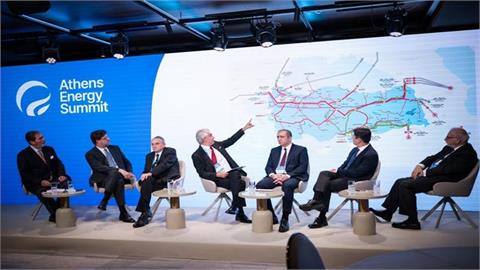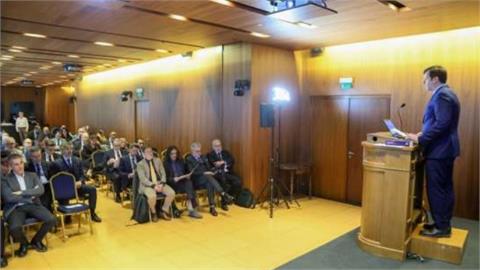Following an invitation by Dr. Katja Yafimava, senior research fellow of OIES, Costis Stambolis, IENE’s Executive Director visited Oxford on March 16 where he conducted a seminar on the key energy transition and energy security issues currently heading SE Europe’s energy agenda
Following an invitation by Dr. Katja Yafimava, senior research fellow of OIES, Costis Stambolis, IENE’s Executive Director visited Oxford on March 16 where he conducted a seminar on the key energy transition and energy security issues currently heading SE Europe’s energy agenda. The seminar attracted a small circle of experts comprising some of OIES’s top researchers. In his presentation Costis focused on the observed disparity between stated and pursued EU energy and climate strategies and goals and the actual situation prevailing today in most countries of SEE which depend heavily on indigenous coal resources. A combination of financial and social factors are preventing the abandonment of carbon dependent local economies and hence the transition, over the next 10-15 years, to a carbon free environment presents significant problems, especially since the development of Renewable Energy Sources (RES) and efforts to improve energy efficiency also lag seriously behind.
Natural gas is clearly gaining ground as a fuel of choice for many countries in the SEE region and could indeed provide a much needed energy bridge in the transition to a cleaner environment. However, as IENE research shows, the penetration of natural gas in the energy mix of the region over the past 15 years or so, and taking into consideration rising energy demand and changes in consumer behavior patterns, is slow and confounded with problems related to supply, cost and grid distribution expansion. Security of gas supply has been identified as a critical issue for most countries of the region in view of recent history and several disruption incidents. The increased use of LNG could therefore strengthen security but construction and commissioning of new infrastructure is slow.
The seminar concluded with a presentation, by Costis, of IENE’s work related to the South Corridor and its proposal for adopting an "expanded corridor” approach so as to include a series of new gas tie in and entry points resulting from a plethora of new interconnectors, major pipelines and LNG terminals. Coordination, optimisation and management of a multifaceted "expanded south corridor”,in an effort to secure continuous and cost competitive gas supplies for European markets, presents a formidable challenge.




